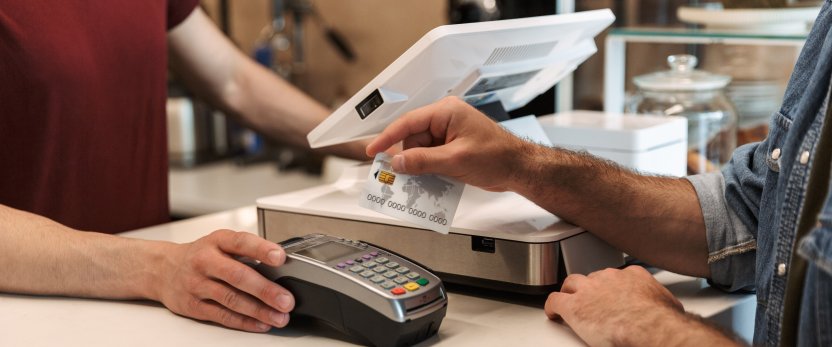Money and Banking
When traveling or operating programs abroad, making payments for goods and services can present unexpected challenges. While this guide provides general advice for international payment options, we recommend consulting your unit's business manager for complex situations or special permissions.
Cornell funds can be used for reasonable, business-related expenses during international travel or projects. If you're spending research grant money, it's essential to understand which costs are allowable under your project funds. For specific funding questions, your research or department administrator is your best resource.
Key University Policies:
- University Policy 3.2, Travel Expenses
- University Policy 3.14, Business Expenses
- Univeristy Policy 3.21, Advances
- University Policy 3.25, Procurement of Goods and Services; and the university's official Buying Manual
- Buying Manual, Human Research Participant Payments
Reimbursements
Before using personal funds for business expenses, faculty and staff should carefully review reimbursement guidelines outlined in Policies 3.2 and 3.14. Understanding these policies before spending can prevent reimbursement complications later.
Cash Advances
Cornell provides cash advances in limited circumstances, typically as site project or operating advances. These advances are issued to individual employees who become responsible for the funds. All expenses require receipt documentation, and additional requirements may apply when using grant funds. Your unit's business office has discretion over cash advance approvals, and complete details can be found in Policy 3.21.
Cornell's Corporate Credit Cards
Procurement Card
A Cornell procurement card (also known as a purchasing card or p-card) is a Visa card that may be used to purchase business-related goods, except travel-related expenses. For most in-country non-travel-related purchases, a p-card is an ideal method of payment. Certain transactions are prohibited on p-cards because the goods or service requires additional review for reasons of tax, insurance, a contract, or other regulatory issues.
Travel and Meal Card
The Cornell travel and meal card (T&M card) pays travel-related expenses and group, business, and hosted meals. T&M cards may be used for travel-related expenses such as airfare; hotel costs; group, business, or hosted meals; registration fees; and incidental supply needs that may arise during travel, such as replacement of traveler's lost laptop power cord.
Payments Made by Local Partners
Some Cornell departments maintain relationships with trusted partner organizations that can facilitate local payments through their established networks. These arrangements require following the Buying Manual's guidelines and establishing clear billing terms through signed agreements and purchase orders. The International Consulting Agreement is typically preferred for procurement arrangements with international entities. Ensure that billing terms are clearly articulated in the signed agreement before incurring any expenses and establish a purchase order through KFS. (Note: Contact OSP if a "subcontract" is required.)
Special Considerations for Remote Locations
Using credit cards or accessing cash can be challenging in some locations where banking infrastructure and online connectivity are limited. For example, local ATMs may limit the sum of daily withdrawals or frequently run out of cash—or establishments may not take credit cards, especially for small purchases like taxis, meals, or coffee.
While carrying large amounts of cash from the U.S. might seem convenient, it poses significant safety risks. For locations where credit cards aren't widely accepted and ATMs are unreliable, Cornell provides a Western Union Retail Payments option for worldwide cash disbursement. This service requires advance planning.
Paying for Services Abroad
Before engaging/hiring short-term consultants, data collectors, and others for international assignments contact your unit's international independent contractor representative to begin a review process. Most situations require formal contracts and direct bank wire transfers. Setting up vendors in Cornell's procurement system takes time, so early planning is essential. We strongly suggest beginning this process as soon as possible to avoid any payment delays.
In extenuating circumstances, exceptions to policy are possible at the discretion of a department's business officer. If direct payments (including cash payments) to a vendor or service provider are approved, all payments must be documented with receipts.
Human Research Participants - Foreign-based studies
Please see Cornell's Buying Manual for information on paying Human Research Participants. The manual includes information about paying U.S. tax residents, as well as foreign nationals.
Internal Grants to Students
Internal research and travel grants provided to students are considered university resources and subject to Cornell's procurement and related policies. The information on this page applies to internal grants as well.
Foreign Bank Accounts
Occasionally, units have significant or cyclical spending needs in a foreign country. Per Policy 3.23, Cornell bank accounts must be opened and managed by Cornell's Office of the Treasurer. Personal accounts cannot be used for university funds. Establishing a foreign bank account can be challenging for a variety of reasons. Foreign bank accounts often require a foreign legal presence or entity, and local regulations may prohibit unspent funds from being sent back to the U.S. Email the treasurer's office for support. Working through a local partner may be an alternative solution.


